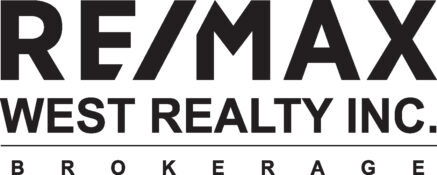This is an important question since many people find themselves in the position of selling a home before purchasing another one. There are different costs associated with each transaction, and the smart approach is to figure those out beforehand and budget accordingly.
Let’s start with selling your home.
When you hire a real estate brokerage to help you market and sell your property – which I recommend you do – you will usually be charged a fee that is either a percentage of the sale price of your home, a set fee, or a combination of percentage and set fee. So, there are a variety of remuneration options available. In Ontario, there is no set commission rate. The seller will have to decide how much they are prepared to pay their own brokerage to sell the property and how much they want to offer the buyer’s brokerage, if anything.
There are good reasons for hiring a real estate agent. They have knowledge of the market and can offer many service options, including staging your home, arranging showings, and negotiating on your behalf.
The services may or may not be included in the fee, so make sure you read the contract carefully and understand your financial commitment before signing.
Other costs a seller must consider include legal fees, the sales tax on the commission, and moving expenses.
Some sellers also choose to have their own home inspection done to identify any issues that need to be addressed before listing the property. And of course you may need to spend money to “spruce up” its appearance.
Home buyers also incur certain costs.
The first key thing to know is the amount of remuneration you will owe your own brokerage to buy a home. Don’t assume the seller of the property will cover any of what you agree to pay your brokerage. Buyers should carefully read any representation agreements they may have signed so they understand their financial obligations. It is always a good idea to clarify any doubts with your real estate agent or real estate lawyer. Other buyer costs can include a home inspection or other specialty inspections, legal fees, land transfer taxes, home and mortgage insurance, and a survey of the property. You might also need bridge financing if you are buying and selling at the same time and your closing dates don’t match up.
Land transfer taxes can be a significant expense for the buyer, and they vary depending on the value of the home and where it is located. Your real estate agent or mortgage lender can help you to estimate these taxes.
Moving costs will depend on volume, distance travelled, and whether you hire a professional mover. If there is a gap between when you sell your home and move into another, you may need to pay for storage of your home’s contents.
There will likely also be hook-up fees for such services as water, electricity and Internet or satellite installation.
Whether you are selling or buying a home, it is a complex financial transaction, and that’s why I recommend getting expert advice from your agent and real estate lawyer. They will help you develop a budget that works for you, and stay within it.
If you have a question for Jasmine Saberi about the home buying or selling process, please email info@jasminesaberi.ca
This column is for general information purposes only and is not meant as legal or professional advice on real estate transactions. Credits: Joseph Richer is Registrar of the Real Estate Council of Ontario (RECO).

